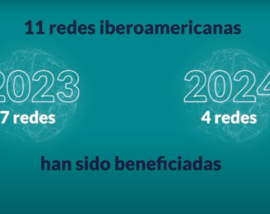Spain: Sharepoint Technical Chief
Organization: Acción contra el Hambre España
Country: Spain
Closing date: 12 Oct 2017
Action Against Hunger is an international non-governmental, private, apolitical, non-religious and non-profit organization created in 1979. Its goal is to combat hunger and dangerous situations that threaten men, women and children. Currently 500 expats and more than 5,000 employees are working for Action Against Hunger in more than forty-six countries working in projects concerning four areas of focus: nutrition, health, food security and water and sanitation.
The Action Against Hunger network is looking for a Sharepoint Technical Chief, for our offices in Madrid.
GENERAL OBJECTIVE
Action Against Hunger has recently upgraded its intranet based on the SharePoint solution migrating from the 2013 to the cloud version.
The new version of the site must meet essential requirements as fit for purpose design, modelling, incorporation of new functions and features, and integration of existing applications. The Sharepoint Technical Chief will carry out the maintenance of the platform, provision of technical support to the network teams, and to be responsible for both designing/creating and /or updating content on the site and developing new functionalities, including implementing data entry form capabilities.
The Sharepoint Technical Chief will work with the Action Against Hunger IT Directors Group to define the architecture, administration, and integration of developments into the new Sharepoint platform. To do this the Sharepoint Technical Chief will support the Head of IT to maintain our Sharepoint farm, design the site, and model and adapt new functions and applications.
This position will work closely with all Action Against Hunger HQs, to gather their requirements and guarantee fruitful collaboration amongst them. S/He will transform these into a functional analysis and participate during their implementation by supporting configuration of site/s structure and steering capacity building among all the stakeholders.
SPECIFIC OBJECTIVES
- Provide escalated support to SharePoint users in coordination with the different HQ It teams
- Manage, maintain and report on technical issues related to SharePoint
- Create and maintain Team Sites and sub-sites
- Assist in preparing content for publication via SharePoint; including, lists, libraries and pages.
- Provide training to technical and non-technical staff in the use of SharePoint to all the HQ offices.
- Provide and maintain support information – user guides, training guides, standards documents
to ensure consistency. - Works closely with the Head of IT to deliver the requested outcomes and ensure user support requested (e.g IT Support, design, infrastructure)
- Create, modify or delete service applications in Sharepoint on cloud.
- Develop new features in Sharepoint: WebParts, Content Types, Event, Handlers
- Tailoring and Design of Form Templates according to the requirements specified by the different functional units (for all HQs).
- Participate in functional and technical design, implementation, operation and management services of SQL Server databases
- With the support of the Head of IT, Carry out SharePoint Server farm configuration, architecture, and installation of Application Services such as Excel, PerformancePoint, Managed Metadata and Business Connectivity Organize and conduct project design sessions and design flexible solutions to meet project requirements
- Design technical solutions, communicated through functional and technical design documents based on previously drawn requirements map
-
Work with the IT Directors of all HQs to articulate implementation strategy through roadmaps, estimates and rollout plans. Report on its progress to them.
-
Lead establishment of requirements at HQs and network level, develop and maintain platform workflows, process performance dashboard, and application integration capabilities
-
Custom development of SharePoint applications.
PROFILE
- Degree in Computer Science or Computer Engineering (or demonstrable equivalent working experience).
- 2+ years SharePoint experience, including SP2010 and SP2013
- 3+ years development experience with Microsoft .NET Framework and SQL.
- Advance Knowledge in Microsoft Technologies, Office 365, Windows Server, Shell scripting and SQL Server.
- Experience with Microsoft Workflow Foundation
- Experience with .NET
- Experience with HTML, Java Script, CSS technologies
- Experience using SharePoint’s REST services layer
- Strong troubleshooting skills
- Experience with software development best practices including source control, release management, code reviews, and bug tracking.
- Solid communication and writing skills
- Experience with SilverLight
- Ability to understand, analyse and summarise
- Capacity to elaborate functional and rigorous documentation
- Capacity to recommend solutions and/or improvements and integrate new solutions.
- English required. Spanish and French desirable.
- Experience in the humanitarian sector desirable
- Ability and willingness to travel
REMUNERATIVE PACKAGE
- We offer immediate incorporation to a dynamic international network with an international career development
- A two years contract
- A competitive remuneration package between 30.000 and 36.000 euro/ gross / year
- The position based in Madrid
- 25 working days of paid leave per year
- Meal Vouchers
How to apply:
We will only consider the candidacies received by our online service. Please click in the following link to accede to the service:
https://employ.acf-e.org/index.php/positions/view/128/
Note. – Given the urgency of this position, the vacancy may close before the deadline. For more information about this position, visit our Website www.accioncontraelhambre.org in case of not find it published here means that the selection process has been closed. 0cm;}


